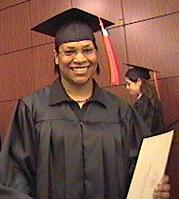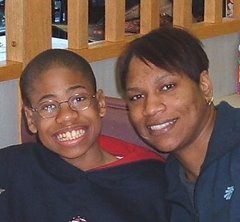Am J Psychiatry 163:294-296, February 2006doi: 10.1176/appi.ajp.163.2.294© 2006 American Psychiatric Association
Autistic Social Impairment in the Siblings of Children With Pervasive Developmental Disorders
John N. Constantino, M.D., Clara Lajonchere, Ph.D., Marin Lutz, B.A., Teddi Gray, Anna Abbacchi, M.S., Kathleen McKenna, Deepti Singh, B.A., and Richard D. Todd, Ph.D., M.D.
OBJECTIVE: Sibling recurrence risk in autism has been estimated to be approximately 10%. This study investigated subsyndromal autistic impairments among siblings of probands with pervasive developmental disorders. METHOD: The authors used the Social Responsiveness Scale to obtain quantitative assessments of autistic social impairment in three groups of proband-sibling pairs: 1) autistic children from multiple-incidence families and their closest in age nonautistic brothers (N=49 pairs); 2) children with any pervasive developmental disorder, including autism, and their closest-in-age brothers (N=100 pairs), and 3) children with psychopathology unrelated to autism and their closest-in-age brothers (N=45 pairs). RESULTS: Sibling Social Responsiveness Scale scores were continuously distributed and substantially elevated for both the autistic and pervasive developmental disorder groups. Highest scores (i.e., greatest impairment) were seen among siblings of autistic probands from multiple-incidence families, followed by siblings of probands with any pervasive developmental disorder, then siblings of probands with psychopathology unrelated to autism. CONCLUSIONS: Taken together with previous findings, these results support the notion that genetic susceptibility factors responsible for common, subsyndromal social impairments may be related to the causes of categorically defined pervasive developmental disorders.
For information, resources and practical strategies on autism visit: www.AutismConcepts.com.
Forget what you haven't heard… Family site shares news, resources, announcements and free or low-cost ways to help us manage day-to-day living with autism.
Crystal Brown

About Me

- Crystal
- AutismConcepts.com and Child-Autism-Parent-Cafe.com share a large collection of useful autism information, resources, and how-to articles written by authors who are touched by autism, offering practical solutions to families. Particularly minority and underserved families and caregivers who may not know what to do or where to go for help.
MJ And Me

Blog Archive
-
▼
2006
(213)
-
▼
February
(24)
- Autism Tsunami Carries Away Parents' Resources
- Contact Your Representatives Tell Them To Sponsor ...
- NYS - Early Childhood Outcomes
- NOTICE: Autism Concepts website will be offline fo...
- Family: Autistic man's death was unnecessary
- Press Release: Reuters Correspondent Fox Hits 'Eas...
- Expert panel dispels the many myths of Autism
- At 21, The Help Ends
- Capitol Insider: Education budget goes upstairs
- Free Seminar - Autism in Alaska:Navigating the System
- Chartbook Compiles Data on Children's Health, Grow...
- FDA Advised to Add 'Black Box' Warnings to Ritalin...
- The Age of Autism: Doctors for mercury
- Dr. Buttar's Private Consultation is now Available...
- Autism & The Brain
- MMR : the facade cracks
- Gold salts autism cure tested
- Free Publication: Special Education in a Nutshell ...
- Former science chief: 'MMR fears coming true'
- Doctor: Wrong medication to blame in autism death
- The Age of Autism: New test of gold salts
- Special Education Students Benefit From Unique Lit...
- Study: Autistic Social Impairment in the Siblings ...
- Information Sessions on New York State’s Implement...
-
▼
February
(24)